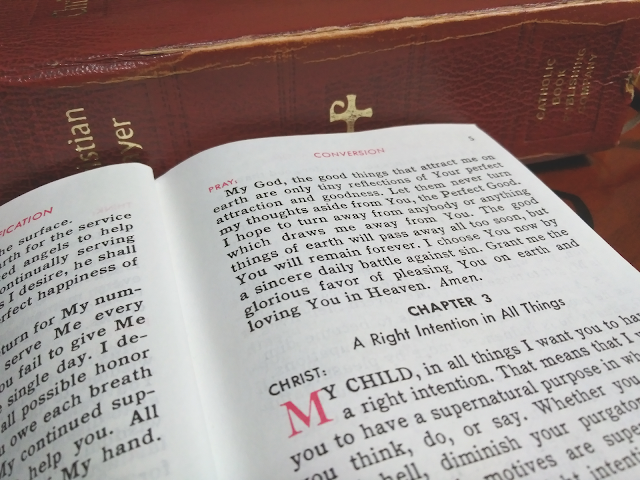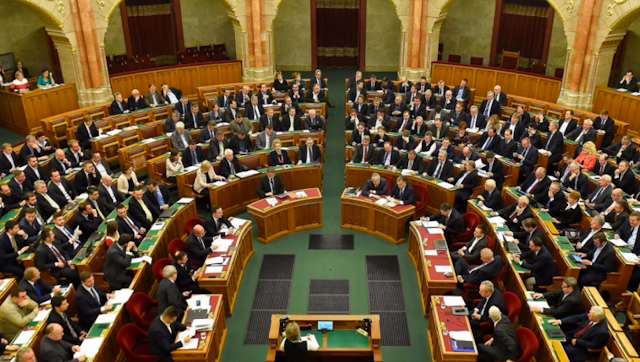 |
| Saint Stephen fireworks celebrations at Hungary's parliament building in Budapest, on August 20. Photo: About Hungary Blog/St. Stephen’s Day in Hungary: What makes it special and what to look for this year |
On August 20, Hungarians celebrate Saint Stephen's Day; a national holiday that commemorates the founding of the state by its first monarch King Saint Stephen, the Christianization of the Magyars, and the history of a nation that has endured for more than one thousand years.
It was a day filled with a variety of festivities, traditions, and celebrations—observed by Hungarian communities throughout the Carpathian Basin—that put Hungary's Christian history, heritage, and identity on full display: the celebration of the Mass at St. Stephen's Basilica, followed by a procession with a relic venerated in Hungary as St. Stephen's holy right hand; a flag-raising ceremony; the swearing-in of new military officers; an address by President János Áder; a nationwide cake competition; the blessing of bread under the statue of St. Stephen at the Buda castle, followed by a procession; the Festival of Arts in the Buda Castle District; "Nostaglic Rides" on vintage trams and buses that only make their debut once a year; the fireworks at the Danube river (captured in the above photo) that are second to none; the Streets of Hungarian Tastes which this year also featured foods from the other Visegrad Four (V4) nations, Poland, Czech Republic and Slovakia; air and water parades; and several family programs and concerts.
Saint Stephen or Szent István Király, whose reign lasted from 1000-1038, was canonized on August 20, 1083, by Pope Gregory VII for bringing Christianity to Hungary and was later deemed the patron saint of Hungary.
In 1771, Queen Maria Theresa declared August 20, as a national state and Church holiday.
Throughout Hungary's history, there were gaps when this day was not celebrated; the most recent during the communist era of the last century (1945-1990) when attempts were made to remove Hungary's Christian heritage, history, and identity from the hearts and minds of the people.
The Hungarian people have not forgotten who they are and through their faith, perseverance, determination, and hard work, the Christian character of St. Stephen's Day has been restored for several years now.
The fact that Hungary celebrates this day on a national level and publishes information about it at the official Hungarian blog and government web site speaks volumes about a people who publicly acknowledge, give thanks, and praise God for the many blessings and gifts bestowed upon Hungary.
As one who follows Hungary's official blog, it came as no surprise to see a post published by Zoltán Kovács, St. Stephen’s Day in Hungary: What makes it special and what to look for this year.
I have been reading about Hungary for approximately three years and became so impressed with the people and its leadership under Prime Minister Viktor Orbán and the Fidesz party he leads, that I eventually decided to start blogging about Hungary. Given Hungary's predominantly Christian culture and the many responsible policy developments with regard to its political, economic, and social life—the details of which can read from Orbán's State of the Nation address—it was only a matter of time before I added "Hungary" and "Viktor Orbán" as blog labels to my blog.
So impressed have I been with Hungary and Prime Minister Viktor Orbán that my first blog post entitled, Viktor Orbán: A True Leader of and for the People of Hungary and Hungary's Constitution The Fundamental Law of Hungary, was dedicated to spotlighting Hungary's constitution—which is explicitly Christian—as well as Orbán's leadership qualities; in particular with respect to the proper and efficient response to the Middle East migrant crisis and his speech on March 15, 2016, the annual day that Hungarians commemorate the 1848 Revolution.
After reading Kovacs's blog post, I navigated to the Hungarian government's web site to view the details of Saint Stephen's Day, which the government has dedicated an entire page to entitled, Augusztus Huszadika or August 20. I encourage all who are further interested to view this page, especially the photo gallery.
The more I read about this national celebration, the more impressed I became with the people of Hungary: the spirit of the celebrations; the joy of the festivities; the upholding of traditions; the devotion to God at Mass and processions; the participation by millions of people of all ages; and the respect given to God and to neighbour which Zoltán Kovács captured in his aforementioned blog post, "Here on August 20th, everyone is Hungarian, a day to celebrate, remember, and give thanks."
God bless Hungary and all Hungarian communities throughout the world.



